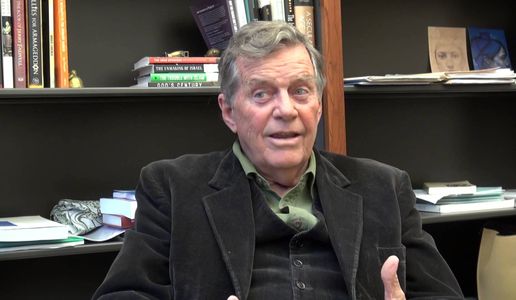Menchik Publishes Essay on Alfred Stepan’s Legacy
Jeremy Menchik, Assistant Professor of International Relations at the Fredrick S. Pardee School of Global Studies at Boston University, recently published an essay on the legacy of Alfred Stepan, a comparative political scientist and Professor of Government at Columbia University.
Menchik’s essay, entitled “Alfred Stepan’s Legacy,” was published by The Immanent Frame on October 31, 2017.
From the text of the article:
Alfred Stepan’s death left a gaping hole in the academy and the world. A giant in the field of comparative politics, Al (as he was known to friends) was an even more powerful force in the world of democratic development, having dedicated much of his life to understanding the forces that lead to democratic transition, democratic consolidation, and democratic breakdown.
Readers of The Immanent Frame are likely to be familiar with his work on religion, including his influential article, “Religion, Democracy and the ‘Twin Tolerations.’” Yet, although he worked closely with Father Theodore Hesburgh on the elimination of nuclear weapons in the 1980s, Al came to the academic study of religion relatively late in his career having already authored or coauthored ten books on the military, authoritarianism, and democratic transition and consolidation. As a result, Al brought a distinctive ethical sensibility to the study of religion and politics. In this essay I want to elucidate that sensibility since it is central to his legacy.
Prior to entering Columbia University in the fall of 1964, Al received a bachelor’s degree in English literature from Notre Dame University in 1958 and a master’s degree from Oxford University in 1960. He served in the Marine Corps from 1960-1963 and was positioned twenty miles off of the coast of Santiago de Cuba during the Cuban Missile Crisis. His first academic paper in graduate school was about the American misperceptions of Cuba that had nearly led to nuclear war. His experience in the Marines also proved crucial for his writing in The Economist on the 1964 military coup in Brazil, as well as his dissertation and subsequent book on Brazil, The Military in Politics (1971).
Jeremy Menchik’s research interests include comparative politics, religion and politics, Southeast Asia, and the Middle East. At Boston University he is a member of the graduate faculty of political science and coordinates the MAIA program with specialization in Religion and International Affairs.
